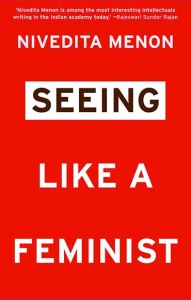Short Book Review: India: A History by John Keay
 SBR: John Keay’s India Discovered was an eye-opening read for me. So, it shouldn’t come as a surprise that I picked up India: A History when I wanted a refresher on Indian history for myself. This book is as charmingly written and accessible as India Discovered. No complaints on that front. There were some annoyances for me. Sometimes the fact that it was a book written by a British for a largely western audience was too much in my face and I wanted to read those things from an Indian perspective instead. Also, there are many instances where certain people, incidents, ideas just pop-up without adequate background. Sometimes I find them to be important ideas whose background was essential. But overall, no history book can satisfy all kinds of audiences. There are trade-offs to be made between being detailed, but huge and unreadable and being concise at the cost of losing some information or nuance. There are also trade-offs between viewpoints to be adopted. Finally, there is a trade-off between being opinionated and readable vs. being dry with a pretense of total objectivity. If some trade-offs rattled me, others worked very well.
SBR: John Keay’s India Discovered was an eye-opening read for me. So, it shouldn’t come as a surprise that I picked up India: A History when I wanted a refresher on Indian history for myself. This book is as charmingly written and accessible as India Discovered. No complaints on that front. There were some annoyances for me. Sometimes the fact that it was a book written by a British for a largely western audience was too much in my face and I wanted to read those things from an Indian perspective instead. Also, there are many instances where certain people, incidents, ideas just pop-up without adequate background. Sometimes I find them to be important ideas whose background was essential. But overall, no history book can satisfy all kinds of audiences. There are trade-offs to be made between being detailed, but huge and unreadable and being concise at the cost of losing some information or nuance. There are also trade-offs between viewpoints to be adopted. Finally, there is a trade-off between being opinionated and readable vs. being dry with a pretense of total objectivity. If some trade-offs rattled me, others worked very well.To read or not to read: Yes, not as “the” book on Indian history, but definitely as an accessible starting point or refresher.









